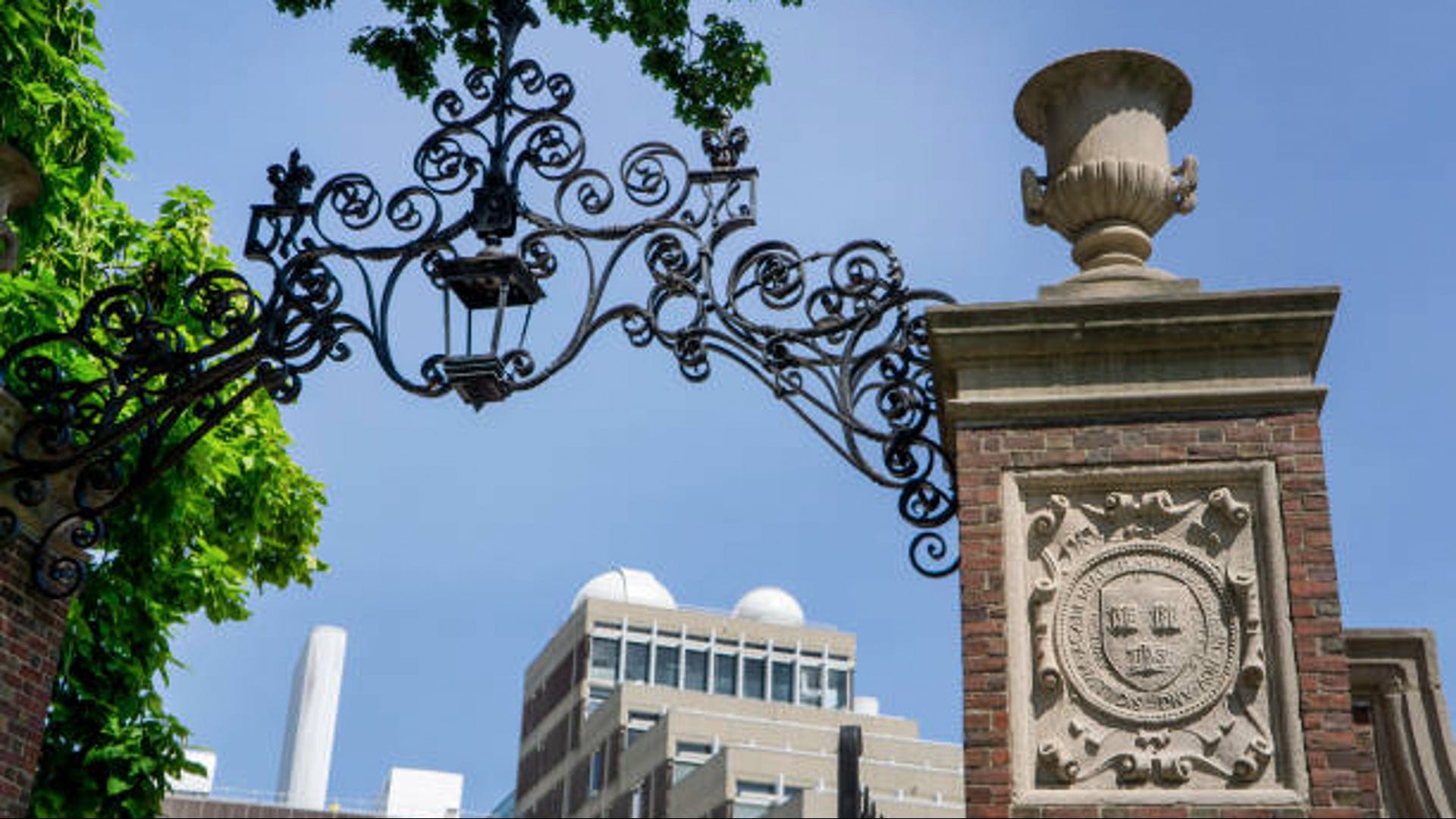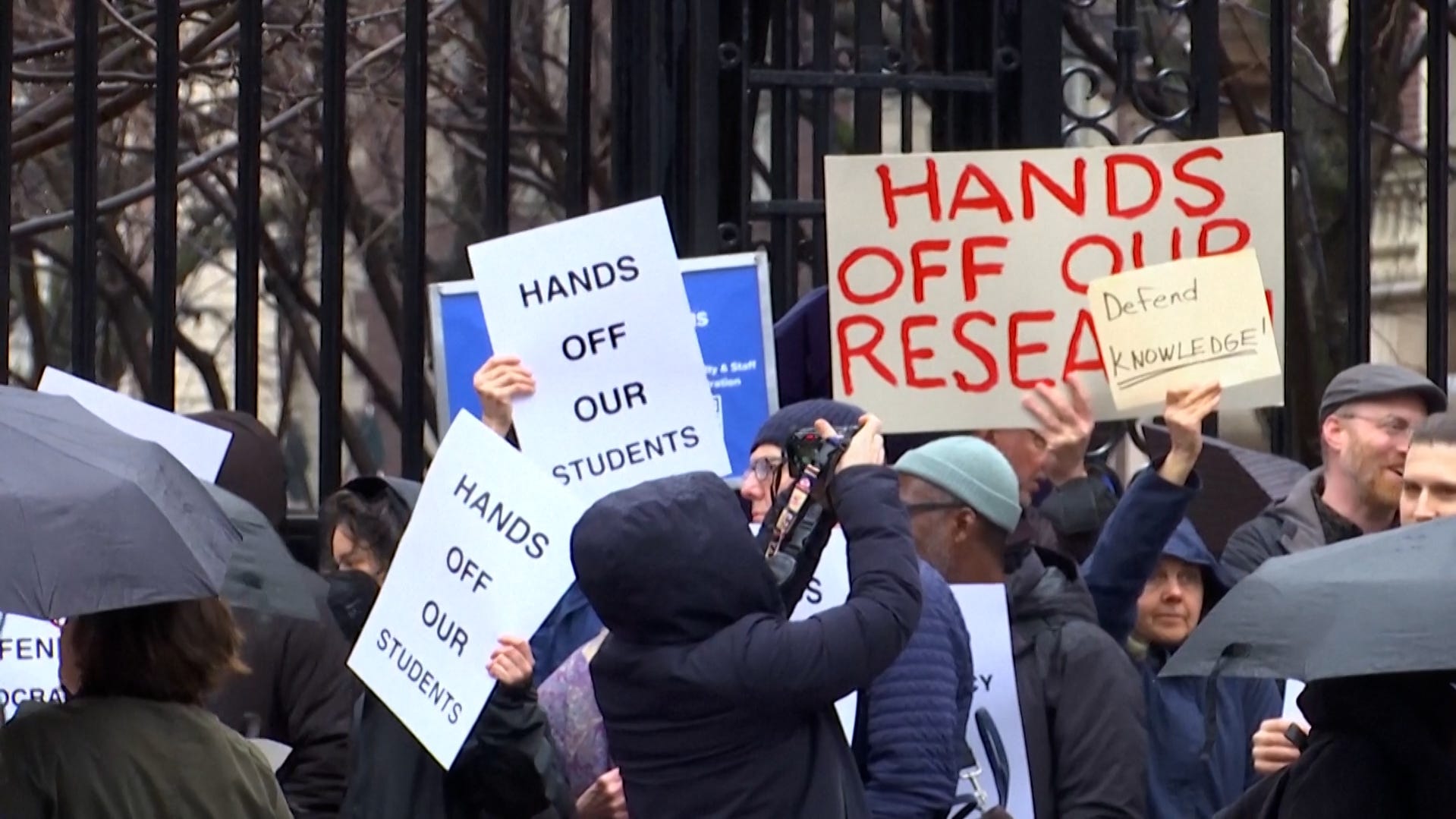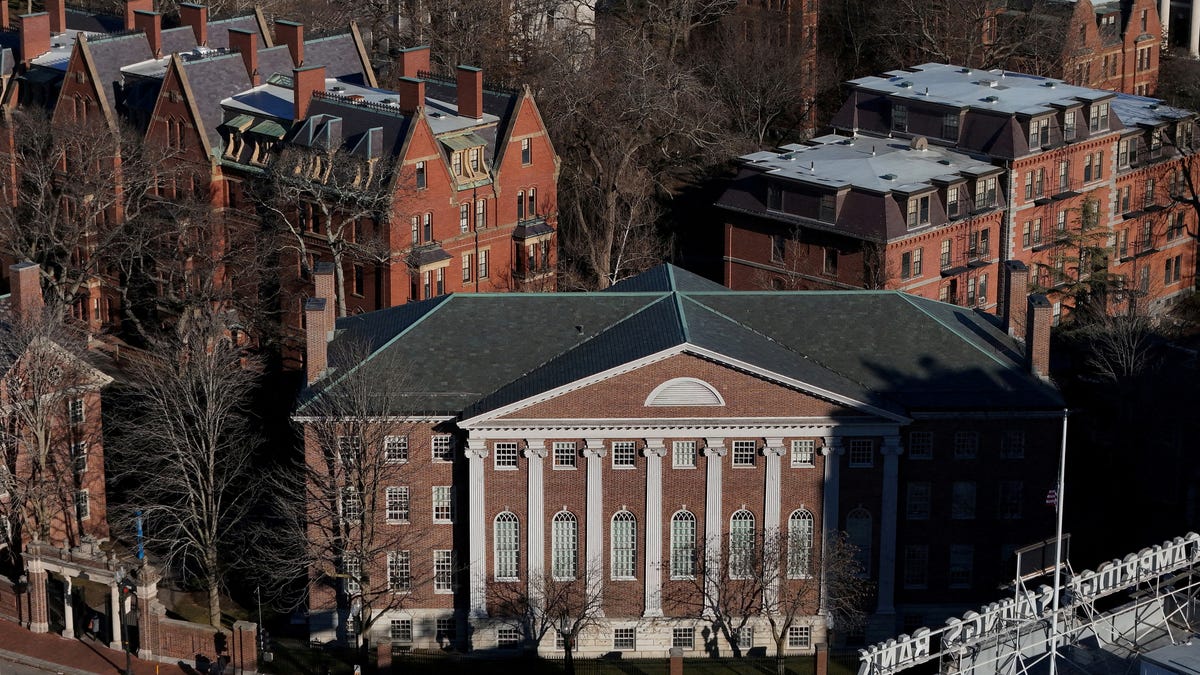The Ivy League school’s vast reserves won’t entirely prevent belt-tightening. But its wealth could help the university lead the charge against Trump’s pressure campaign on higher education.
Trump freezes Harvard funding after university rejects demands
President Donald Trump has threatened to freeze federal funding for multiple elite universities if they do not adhere to his demands.
- Harvard, the wealthiest university in the U.S., has significant unrestricted endowment funds and millions in taxable bonds that could help offset the loss of federal research funding.
- The Ivy League school has already implemented a hiring freeze.
- Harvard’s response to federal pressure differs sharply from that of Columbia University, which still hasn’t seen its funding restored despite its president stepping down last month.
WASHINGTON – Harvard University is very rich. On that, most people agree.
Whether it’s rich enough to get through the next four years unscathed is less certain.
On Monday, the Ivy League school’s leaders took the bold step of publicly rejecting a sprawling list of demands from President Donald Trump’s administration. Alan Garber, Harvard’s president, rebuked the government’s ultimatum, which directed the university to overhaul its admissions, hiring and teaching practices – or risk losing billions in federal funding.
“The University will not surrender its independence or relinquish its constitutional rights,” Garber wrote in a public statement. “No government – regardless of which party is in power – should dictate what private universities can teach, whom they can admit and hire, and which areas of study and inquiry they can pursue.”
The consequences of Harvard’s defiance were swift.
Hours after the university signaled its refusal to bow to the pressure, a federal task force said it would freeze more than $2.2 billion in multi-year grants and contracts to the school. The decision was made, the task force said, in an effort to force elite universities, including Harvard, to take antisemitism more seriously.
“Harvard’s statement today reinforces the troubling entitlement mindset that is endemic in our nation’s most prestigious universities and colleges – that federal investment does not come with the responsibility to uphold civil rights laws,” the task force said in a statement.
The escalating battle between the White House and the nation’s most prestigious college has opened a new phase in the Trump administration’s campaign to overhaul American higher education.
How exactly Harvard will handle the fallout is unclear. Similar to many large research universities, the school pockets massive amounts of money from the federal government every year. Those dollars support everything from research to student financial aid.
Not all of that funding is necessarily threatened, though. The Trump administration has largely targeted Harvard’s federally supported research, which made up about a tenth of its operational revenue in the 2024 fiscal year. And Harvard, the wealthiest university in the U.S., has exponentially more resources than practically every other college in the country.
While the Ivy League school’s vast reserves won’t entirely protect it from belt-tightening, its massive wealth will likely provide a much-needed cushion.
At the same time, its resistance has created a path for other schools to fight back against Trump, too, according to Ted Mitchell, the president of the American Council on Education, higher ed’s top lobbying group.
“Harvard did absolutely the right thing,” he said during a meeting with college officials Tuesday. “Needless to say, they’re paying the price.”
Federal funding for colleges: It’s complicated
Unlike many private colleges, Harvard has a massive endowment: roughly $53 billion, to be exact.
But that money isn’t like a checking account, said Howard Bunsis, an accounting professor at Eastern Michigan University and an expert in higher education finances. Often, that money is earmarked for certain purposes.
About 20% of Harvard’s endowment, however, is “unrestricted.” That pool of money, over $10 billion, is “more flexible in nature,” the school has acknowledged.
Uncertain times like these are exactly what those types of reserves are for, Bunsis said.
“They have the financial wherewithal to easily stand up to this,” he said.

Trump administration to review billions in funding for Harvard
Trump has announced plans to review $9 billion in federal contracts and grants at Harvard University over claims of antisemitism on campus. The administration will be reviewing contracts worth over $255.6 million.
unbranded – Newsworthy
If nothing else, dipping into those earnings could allow the university to hire more lawyers, avoid immediate layoffs and maintain needed research while court proceedings play out, said Kevin Carey, vice president of education and work at New America, a left-leaning think tank.
“This is all about surviving in the short- and medium-term while mounting a political and legal case against Trump,” he said.
Harvard vs. Columbia: Two different approaches
Harvard’s actions Monday differed sharply from at least one of its Ivy League peers.
Columbia University, which became a hotbed of protests over the Israel-Hamas war last year, capitulated to a similar list of demands from the Trump administration and ousted its interim president in late March.

Columbia University faculty protest new policies
Days before students returned, Columbia University gave into the Trump administration’s demands and announced new disciplinary processes.
Yet despite the school’s attempts to assuage the White House, its research funding still hasn’t been restored.
Princeton University, meanwhile, is considering selling approximately $320 million in taxable bonds after the federal government halted more than $200 million in grants. Harvard said last week it also intends to issue taxable bonds (to the tune of $750 million).
That news came as no surprise to Marybeth Gasman, an education professor at Rutgers University. In her view, Harvard wouldn’t have decided to take on Trump without a plan.
“I don’t think they would’ve made this decision unless they had read the tea leaves,” she said. “They would’ve known going in that they could afford it.”
Zachary Schermele is an education reporter for USA TODAY. You can reach him by email at [email protected]. Follow him on X at @ZachSchermele and Bluesky at @zachschermele.bsky.social.
